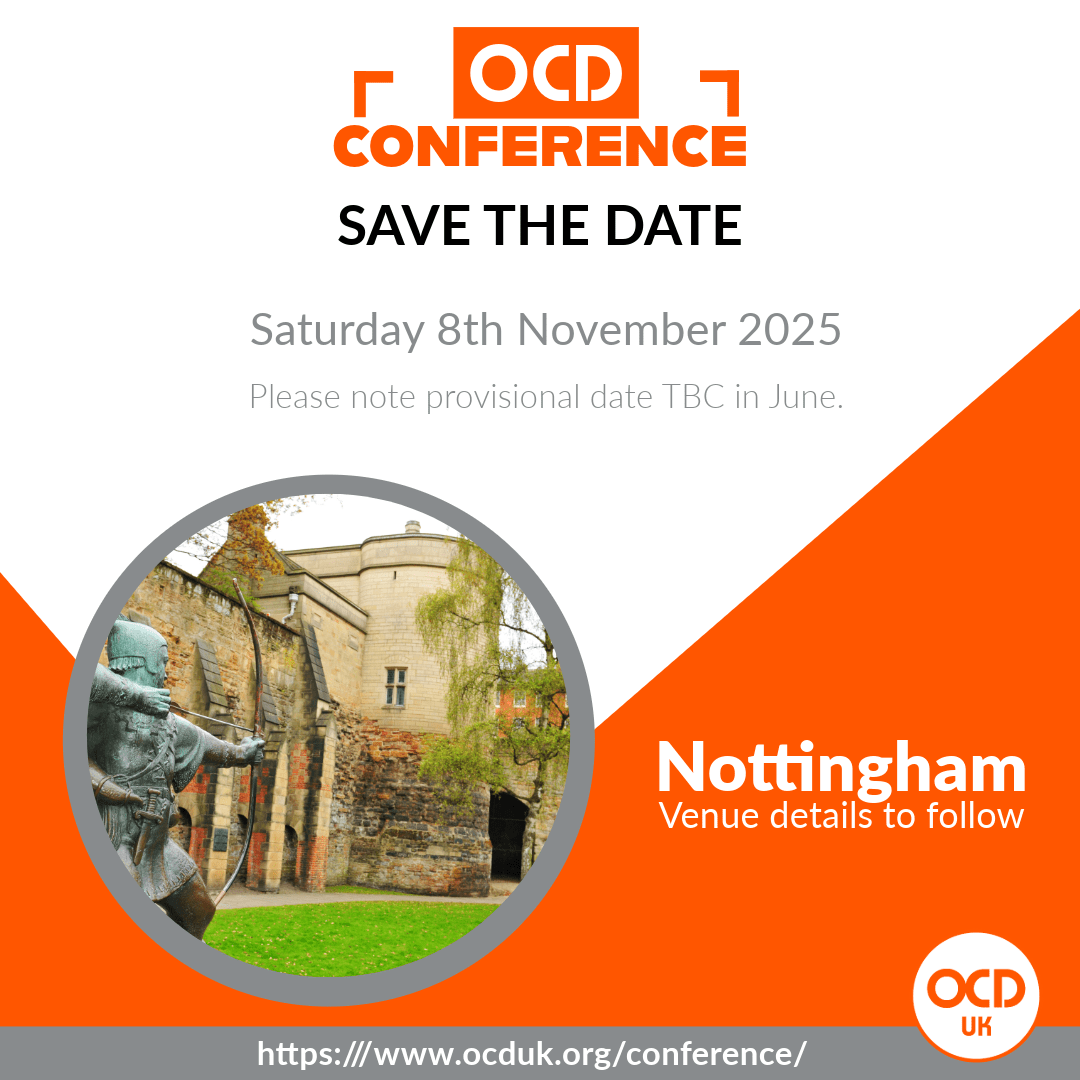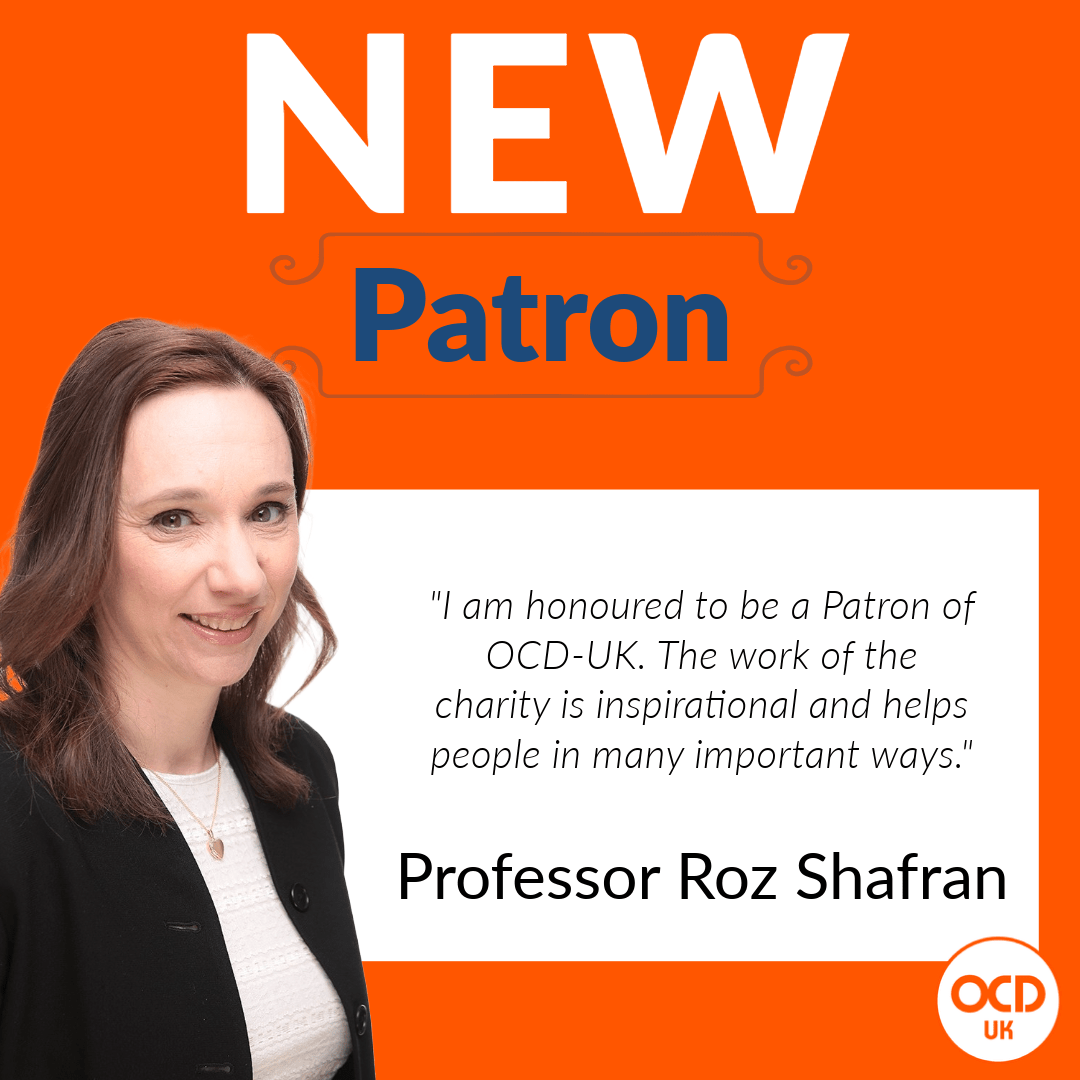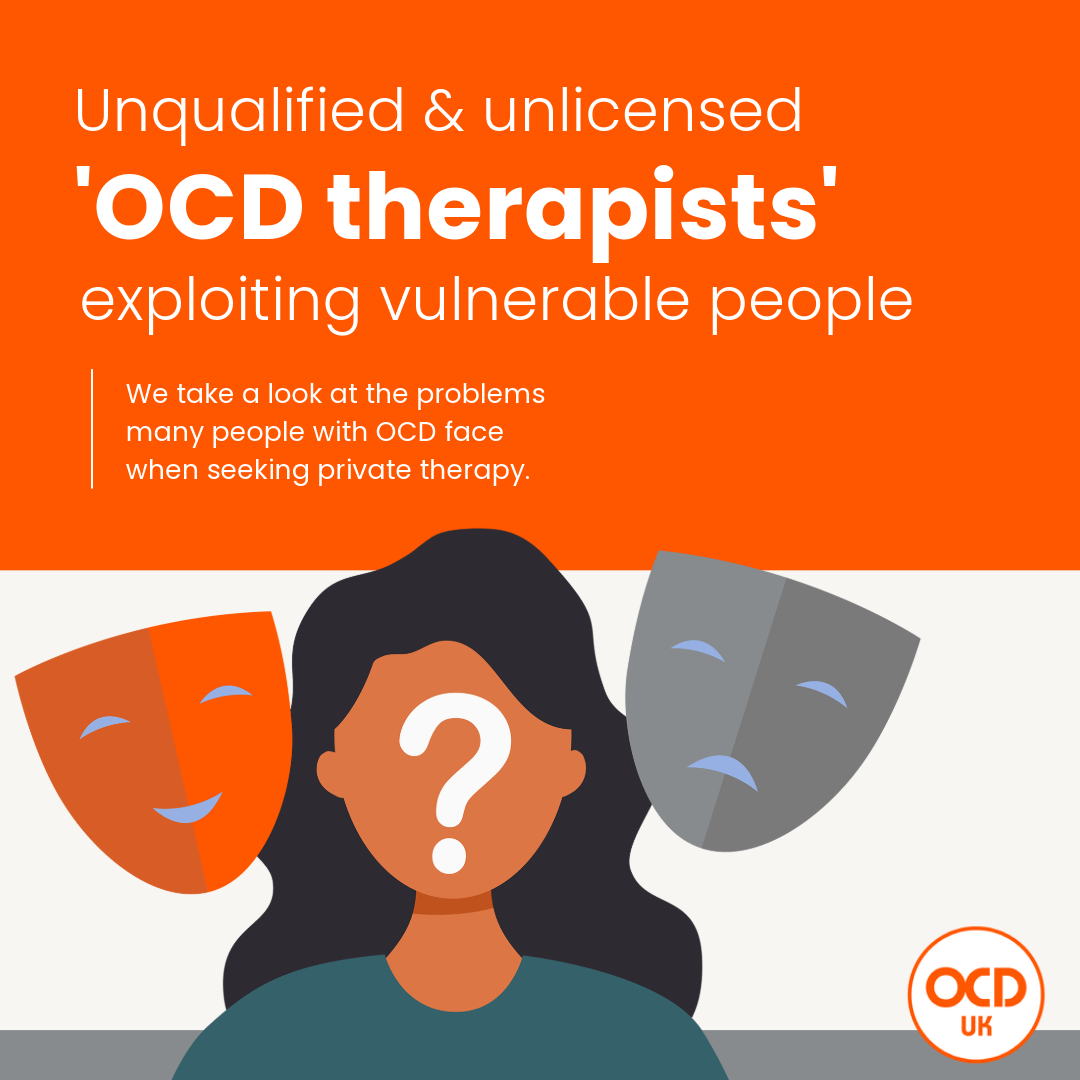This article was first published in the OCD-UK members magazine (December 2017), and published online June 2018.
Did you know that specialist OCD treatment is freely available through the NHS?
We were recently asked about how the different specialist clinics differ, so in December 2017 we reached out to each service to clarify, and we attempt to summarise each clinic here and explain how patients can be referred.
ADULTS – England
On this pages are lists of the NHS centres of excellence in the treatment of Obsessive-Compulsive Disorder (OCD). All of these services offer treatment provided by experts in the treatment and research of OCD. The following is a summary of the services usually offered, although each service may offer slightly different treatment options not listed on these pages on an individual basis where appropriate for the patient.
The
CADAT clinic is the formal name for the service that is sometimes known as the Maudsley. In fact, the Maudsley is actually the name of the world famous hospital site in which the CADAT clinic is based.
What the Service Offers
Outpatient
- CBT (weekly or bi-weekly) for OCD, BDD and Hoarding
- Home based CBT within 1 hour of the clinic, when appropriate
Notes:
– Minimum number of sessions is on average about 10-20 sessions (hours).
– Patients can be offered a medication review.
– Intensive treatment may be possible for OCD (on an outpatient basis).
– Intensive treatment for women with OCD during the perinatal period.
– Sister clinic is ADRU (see below).
Wait Time: 2 months for the initial assessment, a further 4-6 months for treatment (as of December 2017).
Referral Options
- Patients local CCG
- HSS eligible
- Patients own GP using ‘patient choice’
Contact Details
Centre for Anxiety Disorders and Trauma,
The Maudsley Hospital,
South London & Maudsley Trust,
99 Denmark Hill,
London,
SE5 8AZ
How to contact:
Telephone: 020 3228 2101
Website: https://www.national.slam.nhs.uk/services/adult-services/cadat/
Email: anxietydisordersunit@slam.nhs.uk
NHS Trust: South London and Maudsley NHS Foundation Trust
Clinical Lead: Dr David Veale
The
OHSPIC is a brand new clinic that opened in 2019 to treat patients with OCD and other anxiety problems.
What the Service Offers
Outpatient
- CBT (tailored around patient needs, i.e. weekly, intensive) for OCD and Hoarding
- Home based when appropriate
Notes:
– Intensive treatment may be possible for OCD (on an outpatient basis).
Wait Time: At the moment wait time is minimal (no waiting list) once treatment funding is approved. (as of September 2019).
Referral Options
- Patients local CCG via GP
Contact Details
Warneford Hospital,
Headington,
Oxford
OX3 7JX
How to contact:
Telephone: 01865 226361
Website: https://www.oxicpt.co.uk/clinic/
Email: oxfordhealth.ohspic.clinic@nhs.net
NHS Trust: Oxford Health Foundation Trust
Clinical Lead: Joy McGuire, Consultant Cognitive Behaviour Therapist
Clinical Director: Professor Paul Salkovskis, Consultant Psychologist
The
ADRU clinic is the formal name for the service that is sometimes known as the Bethlem. In fact, the Bethlem is actually the name of the hospital site in which this clinic is based.
What the Service Offers
Residential
- CBT for OCD, BDD and Hoarding
- Residential – own room on same sex corridor
- Intensive treatment options (on an outpatient basis)
Notes:
– Average length of stay 12 weeks.
– A minimum of two, and a maximum of five CBT sessions per week.
– Group activities.
– Patients can be offered a medication review.
– Patient must be able to self-care (toilet, shower and feed themselves) and must not require any level of nursing care or be suicidal.
– Patients have freedom to leave the clinic and can go home at weekends.
– Sister clinic is CADAT (see above).
Wait Time: On average about 3 months, but can be up to 7 months if patient requires en-suite room (as of December 2017).
Referral Options
- Patients local CCG
- HSS eligible
- Patients own GP using ‘patient choice’
Contact Details
Anxiety Disorders Residential Unit,
Bethlem Royal Hospital,
Dower House,
Monks Orchard Road,
Beckenham,
BR3 3BX
How to contact:
Telephone: 020 3228 4146
Website: https://www.national.slam.nhs.uk/services/adult-services/adru/
NHS Trust: South London and Maudsley NHS Foundation Trust
Clinical Lead: Dr David Veale
The
OCD/BDD Service is the formal name for the clinic that is sometimes known as the Springfield. In fact, the Springfield is actually the name of the hospital site in which this clinic is based.
What the Service Offers
Inpatient and Outpatient
- CBT for OCD and BDD combined with psycho-pharmacological treatments where necessary
- Inpatient for patients who are unable to care for themselves and perform basic activities of daily living such as washing and bathing without assistance
- Home based / Skype treatment also available
- For patients that are resident in other NHS services, can offer inreach to help those staff manage the patient’s OCD
Notes:
– Inpatient’s have their own room.
– Average length of stay is 16 weeks usually comprising of one individual CBT session per
week, and some group activity. Fully staffed 24/7 inpatient service.
– The treatment programme is individualised to the patient’s needs.
– Patients will be offered a medication review.
Wait Time: 4-6 weeks for assessment. Wait of less than 3 months for outpatient treatment. Inpatient bed wait times vary from a few weeks to a maximum of 6 months, but generally shorter if the patient is willing to accept a bed at short notice (as of November 2017).
Referral Options
- Patients local CCG
- HSS eligible
Contact Details
National OCD/BDD Service,
Springfield University Hospital,
61 Glenburnie Road,
Tooting,
London,
SW17 7DJ
How to contact:
PLEASE NOTE: These are non emergency contact details and may not be monitored out of office hours and responses can take several days. If you are in crisis please contact your local NHS services for help and support.
Telephone: 020 3513 6961
Website: https://www.swlstg-tr.nhs.uk/our-services/find-a-service/service/ocd-bdd-service-national
Email: ocdbdd@swlstg-tr.nhs.uk
NHS Trust: South West London and St George’s Mental Health NHS Trust
Clinical Lead: Dr Lynne Drummond
What the Service Offers
Outpatient and home based (some inpatient)
- CBT for OCD, BDD and related disorders including home-based CBT
- Psycho-pharmacology treatment for OCD, BDD and related disorders
- Inreach for people admitted onto wards at Hertfordshire Partnership University NHS Foundation Trust and inpatient units elsewhere in England, including for people receiving treatment under the mental health act
Notes:
– Patients would be expected to engage in treatment with their local NHS services in the first instance and HPFT services would be pleased to collaborate with these services if appropriate.
– Eligible individuals can be offered a medication review and management.
– Opportunities for involvement in research.
Wait Time: 6-12 weeks (as of December 2017).
Referral Options
- Patients local CCG
- HSS eligible
Contact Details
HPFT OCD/BDD Specialist Service,
University of Hertfordshire,
Rosanne House ,
Welwyn Garden City,
Hertfordshire,
AL8 6HG
NHS Trust: Hertfordshire Partnership University NHS Foundation Trust (HPFT)
Clinical Lead: Dr Naomi Fineberg
Service Manager: Ms Tanya Lovett
NHS referral to this service through HSS funding would usually need to be approved by one of the existing specialist services.
What the Service Offers
Inpatient
- CBT for patients with BDD needing inpatient treatment
- CBT for patients with OCD requiring treatment under exceptional circumstances
Notes:
– Patients can be offered a medication review.
– Patients have own room.
Wait Time: On average about 4-8 weeks (as of November 2017).
Referral Options
- Patients local CCG
- HSS eligible
- Private
Contact Details
The Priory Hospital North London,
Grovelands House,
The Bourne,
Southgate,
London,
N14 6RA
How to contact:
Telephone: 020 8882 8191
Website: https://www.priorygroup.com/location-results/item/the-priory-hospital-north-london/obsessive-compulsive-disorder-treatment
Email: northlondon@priorygroup.com
Clinical Lead: Dr David Veale
Note: As of June 2018, the Centre for Specialist Psychological Treatments of Anxiety and Related Problems, based at the University of Bath is currently NOT accepting new patients following the departure of Professor Salkovskis.
ADULTS – Scotland
The Dundee Advanced Intervention Service has a national contract with NHS Scotland, so patients from across Scotland can be referred for OCD treatment without needing any prior funding approval from their local NHS boards.
What the Service Offers
Outpatient and Inpatient
- ERP for OCD (not BDD)
- Home based treatment (some geography limitations)
- Intensive inpatient treatment available
Notes:
– Patients can be offered a medication review.
– Inpatients have own room with an en-suite bathroom.
– Their website suggests treatment is more ERP based than CBT, but the clinic does explore the contribution of the person’s thoughts and beliefs about themselves and the issues they are concerned about.
Wait Time: On average about 8-9 weeks for initial assessment after referral (as of December 2017).
Referral Options
- Patients local community health team
Contact Details
Advanced Interventions Service,
Ninewells Hospital and Medical School,
Area 7, Level 6,
South Block,
Dundee,
DD1 9SY
How to contact:
Telephone: 01382 496233
Website: https://www.advancedinterventions.org.uk
Email: enquiries@advancedinterventions.org.uk
NHS Trust: NHS Tayside
Clinical Lead: Dr David Christmas

For patients in Wales and Northern Ireland you may be able to be referred to any of the above clinics in England or Scotland for treatment, but you would need the funding approval from your own local health boards.
For patients in Scotland you may be able to be referred to any of the above clinics in England for treatment, but you would need the funding approval from your own local NHS board.
CHILD & ADOLESCENT SERVICES – England
What the Service Offers
Outpatient
- CBT (weekly) for OCD, BDD and related disorders
- Treatment may involve parents or carers and other family members
- Medication management and review
Notes:
– Network planning with local CAMHS referring service to provide interventions through local services.
– Some bi-weekly or Skype sessions can be offered if geography prevents weekly visits.
– They also assess and treat OCD in young people with developmental disorders like autism spectrum disorders or neurological conditions.
Wait Time: On average about 3-6 months, currently working towards a maximum wait of 3 months following assessment (as of December 2017).
Referral Options
- Patients local CCG
- HSS eligible
- Private (but no waiting time priority is offered)
Contact Details
National Specialist CAMHS OCD, BDD and Related Disorders Team,
The Michael Rutter Centre for Children and Young People,
Maudsley Hospital,
De Crespigny Park (off Denmark Hill),
London,
SE5 8AZ
How to contact:
Telephone: 020 3228 5222
Website: https://www.national.slam.nhs.uk/services/camhs/camhs-ocd/
NHS Trust: South London and Maudsley NHS Foundation Trust
Clinical Lead: Dr Bruce Clark
The
OHSPIC is a brand new clinic that opened in 2019 to treat patients with OCD, BDD and other anxiety problems and will treat adolescents with OCD.
What the Service Offers
Outpatient
- CBT for OCD, BDD and anxiety problems
- Home based when appropriate
Notes:
Wait Time: At the moment wait time is minimal (no waiting list) once treatment funding is approved. (as of September 2019).
Referral Options
- Patients local CCG via GP
Contact Details
Warneford Hospital,
Headington,
Oxford
OX3 7JX
How to contact:
Telephone: 01865 226361
Website: https://www.oxicpt.co.uk/clinic/
Email: oxfordhealth.ohspic.clinic@nhs.net
NHS Trust: Oxford Health Foundation Trust
Clinical Lead: Joy McGuire, Consultant Cognitive Behaviour Therapist
Clinical Director: Professor Paul Salkovskis, Consultant Psychologist
NHS referral to this service through the HSS funding would usually need to be approved by one of the existing specialist services.
What the Service Offers
Inpatient
- CBT for young people with either OCD or BDD aged 12-17 needing inpatient care
Notes:
– Patients can be offered a medication review.
– Patients have own room.
Wait Time: On average about 4-8 weeks (as of November 2017).
Referral Options
- Patients local CCG
- HSS eligible
- Private
Contact Details
The Priory Hospital North London,
Grovelands House,
The Bourne,
Southgate,
London,
N14 6RA
How to contact:
Telephone: 020 8882 8191
Website: https://www.priorygroup.com/location-results/item/the-priory-hospital-north-london/obsessive-compulsive-disorder-treatment
Email: northlondon@priorygroup.com
Clinical Lead: Dr David Veale
REFERRALS
How patients in England can access the specialist services.
For patients in England there are generally two routes to the specialist services:
- Route 1 – Local CCG (Clinical Commissioning Group) funded
- Route 2 – National HSS (Highly Specialised Service) funded
Each part of England will have its own
Clinical Commissioning Group (CCG) who are responsible for the funding of treatment for patients in their region. If local NHS treatment options have been explored without success, a patient can request treatment at one of the aforementioned specialist NHS services. There is no clinical criteria if the CCG fund the treatment. Initially the request to the CCG needs to be made by a health professional, a GP can make it, but ideally it will be supported or made by a local NHS mental health professional which recommends that the local CCG approve funding.
CCG’s will frequently say no, but this should not be accepted without challenging, which OCD-UK can assist with.
Some of the above treatment services are part of a national treatment funding programme, called the
Highly Specialised Service (HSS) – formerly NCG (National Commissioning Group). Funding for the treatment is provided by NHS England directly, rather than the local CCG. A GP or local NHS mental health professional can make a referral directly to the clinic of choice.
To be eligible for HSS funding a patient must meet certain clinical criteria. This usually requires a patient to have:
- A profoundly severe condition as measured using the Yale Brown Obsessive Compulsive Scale (YBOCS).
- Two trials of serotonin reuptake inhibiting medication (SSRI) for a minimum of 3 months each in maximum recommended dosage and without substantial improvement.
- Augment the SSRI with another medication, frequently with an anti-psychotic medication or sometimes Clomipramine.
- Two trials of CBT involving exposure and response prevention (ERP) without significant improvement.
If a patient is not able to take medications due to other medical conditions, then medication criteria for HSS referrals should be relaxed. If a patient does not meet the HSS clinical criteria, they can still be referred to their national clinic of choice, but will have to get CCG funding approval (see note above).
OCD-UK can help support anyone trying to get access to any of these specialist services.
Have you previously been successfully treated by one of these specialist units? Then why not share your story with OCD-UK, and help us inspire others to attempt to access specialist treatment.
What to read next:
[lastreviewed]
[nextreviewed]
Disclaimer: This article is for information only and should not be used for the diagnosis or treatment of Obsessive-Compulsive Disorder or any other medical condition. OCD-UK have taken all reasonable care in compiling this information, but always recommend consulting a doctor or other suitably qualified health professional for diagnosis and treatment of Obsessive-Compulsive Disorder or any other medical condition.

























